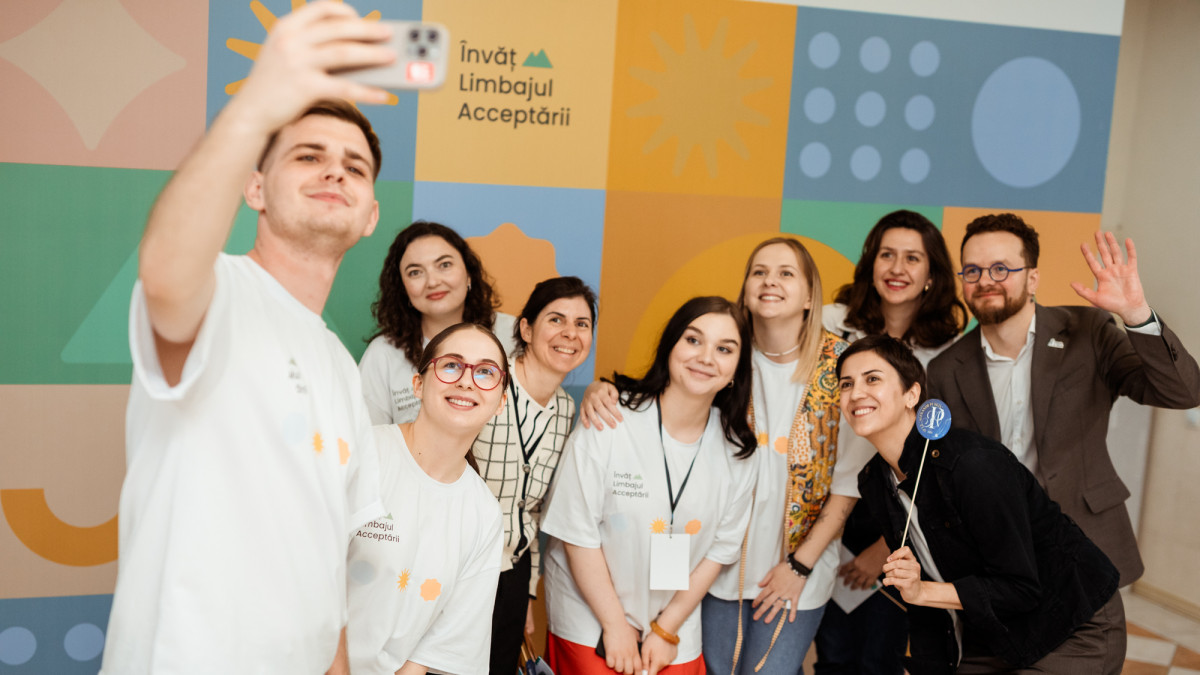The European Union supports the inclusion of pupils with special educational needs
Published: May 13, 2025 Reading time: 3 minutes Share: Share an article
How do we learn to be kinder to one another? How can we build more inclusive communities where every voice matters? Sometimes, the answers to these questions take shape in classrooms, between lessons, or through the courageous initiatives of young people who decide to change. That is precisely what happened during the“Learning the Language of Acceptance” project’s second edition.
Over eight months, 30 students and 15 teachers from the model school network teamed up to turn ideas into action. They took part in training, both online and in person. They learned how to communicate effectively, coordinate activities, organise events, and most importantly, create safe spaces where diversity is respected and inclusion becomes a daily practice.
“Projects like Learning the Language of Acceptance don’t just shape character—they build bridges between people. We are proud to be part of this positive transformation, together with dedicated young people and committed partners”
– Rafal Chibowski, Country Director, People in Need Moldova.
What does inclusion mean? The young people involved in the programme asked this question not only among themselves, but also within their communities. The answers came through video interviews (vox pops), local campaigns, and open conversations with their school peers. Some initiatives focused on the importance of volunteering and community belonging. Others tackled identifying and combating stereotypes—a complex but essential topic.
A memorable moment for many participants was the public speaking exercise. For most, it was their first experience speaking freely in front of an audience. With nerves and great courage, they shared their ideas, values, and beliefs. They learned not only how to speak, but also how to make their voices heard.
The impact of these months of involvement is visible in the numbers: 82 activities carried out across 15 local campaigns, over 7,800 people directly engaged in communities, and more than one million online views. However, the most important result is that the seeds of real change have been planted in each participating school.
“When students begin to speak openly about differences and organise campaigns that include all their peers, it means the school is truly becoming a space of acceptance. This edition of the project confirmed that change begins within the community”
– Ludmila Adamciuc, President of the “Prietena Mea” Association.
Although this edition has ended, many initiatives started in schools will continue. Beyond the numbers and certificates, the real success lies in the small but consistent transformations that young people carry forward. Because sometimes, acceptance is learned step by step, and it stays with us forever.
The second edition of “Learning the Language of Acceptance” was implemented by Prietena Mea in partnership with the Ministry of Education and Research of the Republic of Moldova and People in Need Moldova, with financial support from the European Union.



